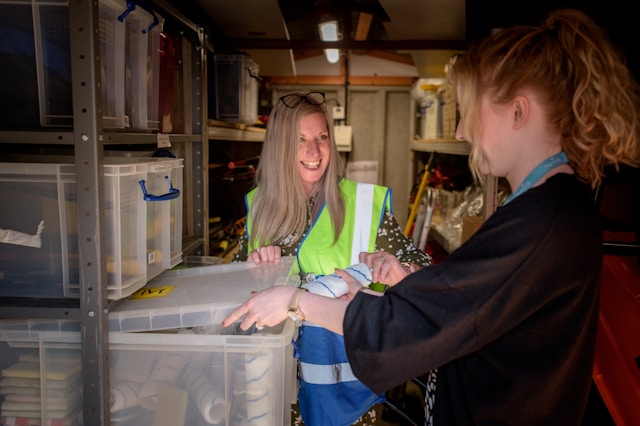By managing shipping, packing, and storage, Amazon's Fulfillment by Amazon (FBA) service helps sellers with many of their logistical issues. Additionally, it makes your items accessible through Amazon Prime, which may increase sales and awareness.
However, FBA might not always be appropriate for your particular business requirements. Examining other fulfillment alternatives, such as Seller-Fulfilled Prime, third-party suppliers, or direct merchant fulfillment, might help you identify one that is more in line with your objectives.
Why More Sellers Are Exploring Alternatives to Amazon FBA
A lack of branding control, strict storage regulations, delayed restock restrictions, and rising expenses have made many merchants search for more adaptable fulfillment solutions. Although Amazon FBA is helpful, there are frequently trade-offs associated with it, such as lower profits and less consumer data.
It is becoming more and more necessary for sellers who are serious about expanding on their own terms to look into alternatives to FBA.
Reasons to Choose Amazon’s Fulfillment Alternatives
- More Control: Alternatives let you manage inventory, branding, and packaging exactly how you want.
- Lower Costs: Many options offer competitive storage and fulfillment fees—especially for high-volume sellers.
- Brand Differentiation: Avoid generic Amazon packaging and create a customer experience tailored to your brand.
- Better Data: Own your customer relationship and access full buyer insights to fuel marketing and retention.
- Less Risk: FBA policies can change with little notice. Third-party or hybrid strategies add a layer of security.
Amazon’s Fulfillment Alternatives to FBA
a. Third-Party Alternatives
Third-party logistics providers (3PLs) provide storage, order processing, and shipping services to e-commerce enterprises outside of the Amazon ecosystem. These solutions provide merchants complete control over their brand while benefiting from a professional fulfillment infrastructure.
Advantages of Choosing a 3PL:
- Full branding control
- Lower or negotiable storage/fulfillment costs
- Access to multiple sales channels (not just Amazon)
- Better scalability and flexibility
- Direct customer relationship
Mina: A Smarter, Scalable Third-Party Alternative to FBA

Mina does more than just transport boxes; they provide scalable growth for your e-commerce firm. This AAAAA-rated freight and fulfillment firm, located in China, combines sophisticated AI technology with extensive logistical skills to provide one of the most advanced fulfillment options on the market today.
What Sets Mina Apart?
- Proprietary AI-Driven Pick & Pack: Speed and precision in every order—our AI-driven system processes orders 90% faster, with fewer errors.
- Exclusive Shipping Lines: Faster, more reliable deliveries with priority handling and reduced costs.
- Integrated Product Services: From sourcing to design and development, Mina supports you from concept to shelf.
- Global Warehousing: Store your inventory close to your customers, reducing shipping time and costs.
- ISO 9001 Certified: A quality-first approach that ensures consistency, accuracy, and customer satisfaction.
Pros of Choosing Mina:
- Full branding and fulfillment control
- End-to-end support from product sourcing to delivery
- Faster, more reliable shipping options
- Real-time inventory visibility through Mina’s app
- Scalable and cost-effective solution for growing brands
Cons of Choosing Mina:
- Requires some initial setup/integration
b. Handling Orders Yourself
For small firms or first-time sellers, managing orders in-house may appear to be a straightforward, cost-effective option. You keep things at home or in a small leased area, pack them yourself, and ship using carriers such as DHL, UPS, or local couriers.
This strategy provides total control, but it isn't necessarily scalable.
Pros:
- Full control over branding and customer service
- Low upfront costs if order volume is small
Cons:
- Time-consuming as order volume grows
- Limited scalability and operational complexity
- Risk of delays and human errors
c. Prime Delivery on Your Own Terms
Amazon's Seller Fulfilled Prime (SFP) program enables sellers to show the Prime badge when fulfilling orders from their own warehouse or 3PL. It's an amazing hybrid solution for those who desire Prime's visibility without relying on FBA.
However, due to high-performance standards and eligibility difficulties, it is only appropriate for experienced, well-resourced vendors.
Pros:
- Maintain Prime badge visibility
- Control over packaging and fulfillment
Cons:
- High performance standards (1–2 day delivery, low cancellation rate)
- Complex logistics setup and monitoring
d. Outsourced Inventory Storage and Shipping Services
External storage and delivery partners, such as independent warehouses or courier fulfillment centers, can help alleviate operational costs. These partners store your items and manage shipments depending on orders you submit manually or through platform integration.
Pros:
- Reduced need for warehouse space
- More affordable storage compared to Amazon
- Flexible, location-specific warehousing
Cons:
- Less integrated compared to 3PLs
- Potential delays without automation
Final Thoughts
Amazon FBA may still be useful for some sellers, but it is no longer a one-size-fits-all solution. Whether you want to save expenses, enhance customer experience, or diversify your fulfillment strategy, looking at FBA alternatives is a wise decision.
Mina helps you do more than just ship orders. We power your whole fulfillment chain with intelligent automation, smart sourcing, and customized service—allowing your company to expand quicker, smoother, and more profitably.
Are you ready to rethink fulfillment? Learn how Mina can help you break free from FBA and take charge of your e-commerce development.









